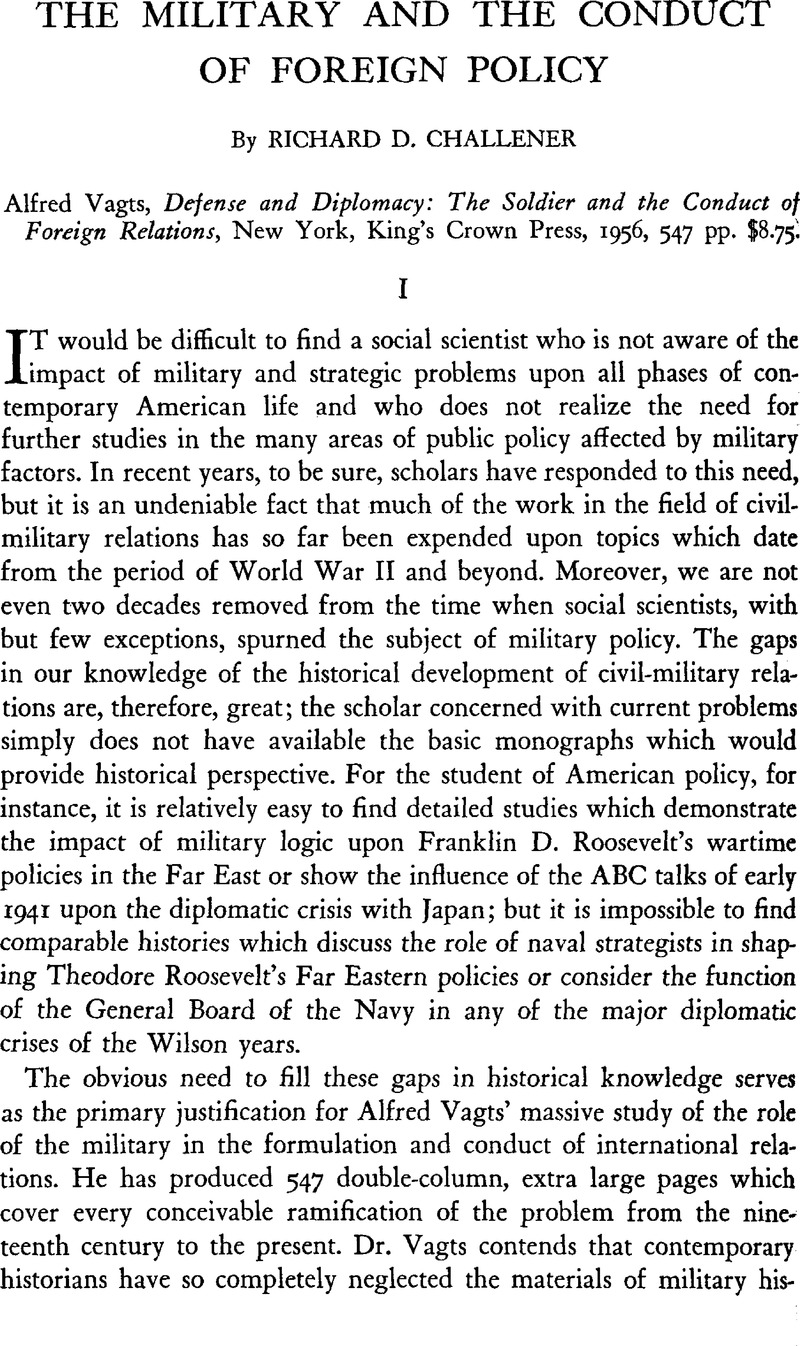No CrossRef data available.
Published online by Cambridge University Press: 18 July 2011

1 This reviewer would, for instance, like to dissent from Vagts' view that America's entry into both world wars can be considered in terms of the waging of preventive war—one of the “undeclared motivations,” according to the author. Further criticism might also be directed against his easy assumption of the general revisionist approach to F.D.R.'s pre-1941 diplomacy. His general thesis is close to that of his father-in-law, the late Charles A. Beard, and includes the usual out-of-context quotations from Stim-son's On Active Service. Vagts at least seems to believe that America fought the right war with the right enemies and engages in none of the polemics or painful moralizing of most of the revisionists. It is also open to question whether the few examples which he gives of the role of the military in pre-1917 American foreign policy do not present a misleading picture. In these matters he does seem to be guilty of carrying European stereotypes across the Atlantic.
2 History of Militarism, p. 12.